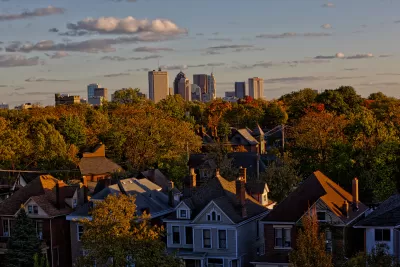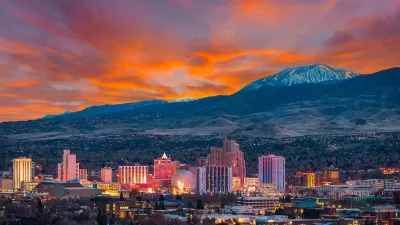Columbus has approved six zoning code amendments, which include height limit increases from three stories to 16 and eliminate parking requirements for large developments in 12,300 parcels along major transportation corridors.

The Columbus Dispatch reports that the “Columbus City Council voted Monday to overhaul the city's zoning code, paving the way for new higher-density development in parts of the city.” The unanimous vote on all six resolutions amending the city’s zoning code comes after years of planning and months of public meetings and concerns about how increased density would affect the city. “At the Monday meeting, council members said the change will help modernize the code into a more lenient process, eliminate delays, keep up with Columbus' growing population, and ease the housing shortage in the future,” as well as fix “a broken system plagued by a history of redlining, or discriminatory financial practices historically used against marginalized communities such as racial or ethnic minorities,” writes reporter Cole Behrens.”
As part of the zoning changes, Columbus has targeted 12,300 parcels along major bus corridors throughout the city and allows for case-by-case height and parking variances to help increase the number and affordability of new housing units. Building heights in these zones, previously restricted to 35 feet, can now go as high as 16 stories along some major streets; in most instances, to get the maximum height allowed, developers will have to meet an “affordability requirement” that “grants them two to four extra stories, based on the category, if developers provide the required amount of affordable housing.” The code also eliminates parking requirements for large developments, which previously were required to provide hundreds of off-street parking spaces, often in the form of expensive underground garages.
FULL STORY: Columbus approves sweeping zoning changes, increasing height limits in parts of city

Study: Maui’s Plan to Convert Vacation Rentals to Long-Term Housing Could Cause Nearly $1 Billion Economic Loss
The plan would reduce visitor accommodation by 25,% resulting in 1,900 jobs lost.

North Texas Transit Leaders Tout Benefits of TOD for Growing Region
At a summit focused on transit-oriented development, policymakers discussed how North Texas’ expanded light rail system can serve as a tool for economic growth.

Using Old Oil and Gas Wells for Green Energy Storage
Penn State researchers have found that repurposing abandoned oil and gas wells for geothermal-assisted compressed-air energy storage can boost efficiency, reduce environmental risks, and support clean energy and job transitions.

Santa Barbara Could Build Housing on County Land
County supervisors moved forward a proposal to build workforce housing on two county-owned parcels.

San Mateo Formally Opposes Freeway Project
The city council will send a letter to Caltrans urging the agency to reconsider a plan to expand the 101 through the city of San Mateo.

A Bronx Community Fights to Have its Voice Heard
After organizing and giving input for decades, the community around the Kingsbridge Armory might actually see it redeveloped — and they want to continue to have a say in how it goes.
Urban Design for Planners 1: Software Tools
This six-course series explores essential urban design concepts using open source software and equips planners with the tools they need to participate fully in the urban design process.
Planning for Universal Design
Learn the tools for implementing Universal Design in planning regulations.
Ascent Environmental
Borough of Carlisle
Institute for Housing and Urban Development Studies (IHS)
City of Grandview
Harvard GSD Executive Education
Toledo-Lucas County Plan Commissions
Salt Lake City
NYU Wagner Graduate School of Public Service





























